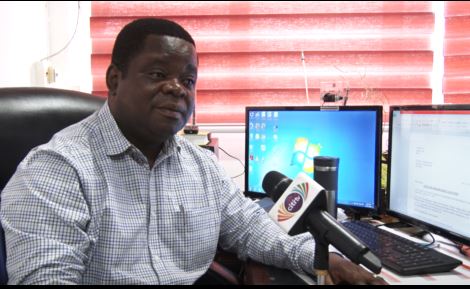Economist, Prof. Peter Quartey, has urged government to be tactical in seeking for debt relief from China to ease the pressure on Ghana due to the fight against COVID-19.
According to him, singling out China could send a wrong signal especially as the virus emanated from the Asian country.
In a recent interview with a US-based think-tank, the Center for Global Development, the Finance Minister, Ken Ofori-Atta, appealed to China to consider a debt relief for African countries particularly developing economies.
“I think our African debt to China is $145 billion or so. About $8 billion of payments is required this year [2020] and about $3 billion being interests; so that needs to be looked at,” he noted.
Already, the amount of credit granted by China to African countries in the last two decades, has seen a sharp increase. China has always granted loans to African countries on commercial basis, a situation that makes most African countries vulnerable to debt distress as the world battles the COVID-19 pandemic.
Due to China’s granting of loans on bilateral basis rather than to the regional bloc, Prof. Peter Quartey told Citi Business News African countries must appeal to China on humanitarian grounds for debt relief or rescheduling.
“Humanitarian grounds for seeking debt relief. I emphasize the point humanitarian, in the sense that the call to only China might seem as if China is responsible for COVID-19; and I don’t think it is a position China would accept. So, if you are seeking for debt relief globally from other countries that is fine. But if you are seeking from China, then you have to present your case carefully because it shouldn’t be as if because COVID-19 originated from Wuhan, that is why China is bound to provide debt relief. It is going to be on humanitarian grounds,” he said.
Meanwhile, some observers have called on African leaders to approach the debt relief appeal through regional blocs such as ECOWAS and the African Union to help present a coordinated force from the continent.
Prof. Peter Quartey however believes a certain level of coordinated appeal alongside bilateral engagements could yield the needed results.
“I think a collective action will be better. Countries can start the conversation with their bilateral partners, but a collective approach, through ECOWAS or through AU will certainly add more weight. But having said that, we are all different, countries are at different levels of engagement with China, some have strong ties with China than others. So, of course the discussion should start on a bilateral basis and the regional bodies will also come in and support whatever move, each country takes,” he notes.
Due to the outbreak of the novel Coronavirus in the country, many businesses have been hard hit.
Financial conditions have tightened, and the economy has been hugely impacted. This has resulted in increased government and external financing needs.
Ghana has so far recorded 566 cases, 8 deaths and 4 recoveries. The country has implemented a partial lock-down, and has banned all forms of public gatherings and has closed down schools aside from shutting its borders.
Gov’t to rely on IMF, World Bank & Stabilization Fund to close revenue gap
Last month, the Finance Minister, Ken Ofori-Atta, told Parliament that government will rely on a mix of funds from the World Bank, IMF and withdrawals from the Stabilization Fund to finance the budgetary gap expected to be created by the fiscal impact of the Coronavirus pandemic on the Ghanaian economy.
According to him, this has become vital as receipts from the petroleum industry, revenue from the tourism and aviation industries among others, have been projected to suffer a massive hit from the meltdown associated with the novel virus.
Source: Citi Business News





